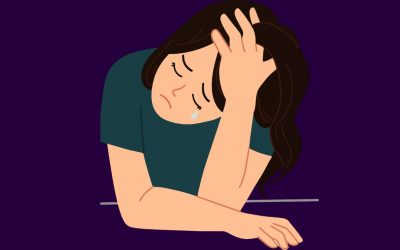Addiction issues are caused by a variety of factors. There was a perception in the past that people’s problems controlling their drinking and drug habits, sexual fantasies, and gambling habits were related to a lack of morality or willpower. A diagnosis of alcoholism and drug addiction was not introduced until the end of the 20th century, and this explanation was used to explain why some individuals were unable to control their substance abuse or gambling behavior.
In recent years, studies have shown that addiction is not caused by a specific disease, a particular personality trait or a lack of will power. The causes of addiction vary from person to person, and there are numerous factors that contribute to it. Numerous factors play a role in the development of addiction issues, including physical factors, mental health factors, and social and environmental factors.

How severe is your addiction?
We all suffer from addictions, regardless of how big or small they are. Some of our less serious addiction behaviors include swiping the phone, worrying, complaining, staying up late, playing video games, shopping, eating excessively, comparing ourselves to others, and even working. Some of the more dangerous types include substance abuse, severe obsessive-compulsive disorder, pornography, and gambling.
Although it may be difficult for addicts to admit objectively that they have an addiction, once they do, the road to recovery begins. There are many people who are unaware they are addicted.
In spite of the fact that addicts may find it difficult to admit their problem, once they do so, the road to recovery begins. The majority of people do not continue their treatment program since they believe they have not reached rock bottom or that there is still room for improvement. In fact, if you are considering whether or not you need outside assistance in order to overcome your addiction, you probably do. Whether it is substance abuse or sexual addiction that has interfered with your normal life and relationships, you may suffer from addiction.
Your next step will likely be to receive addiction treatment if you or your family members have a preliminary judgment that they are addicted.
What are the best ways to break bad habits?
Can you recall how many times you have tried to give up soda, wine and cigarettes? How regretful are you that you didn’t succeed? Your approach to combating bad habits may need to be changed if the answer is “many times.
You cannot force yourself to change bad habits. Breaking a negative pattern requires you to alter your habits. There is a great deal of confusion in life about how to eliminate bad habits and cultivate good ones. Here are a few tips on how to break bad habits and cultivate good ones. Now let’s get started!
1. The first step to eliminating bad habits is to recognize that bad habits exist in the first place. It is only through self-awareness that you can change it.
2. Be aware that bad habits can lead to a crisis in your personal life. Bad habits always have an imperceptible impact on your daily life. Although bad habits exist, you should be aware of their negative effects.
3. Give yourself appropriate support. Change is not easy, and changing a bad habit is even more difficult. So, whenever you make a small change or effort, you can reinforce your subconscious habit of looking inward.
4. Be aware of any triggers you may encounter. Perhaps you have noticed that you tend to smoke when you are with a friend after drinking.
5. Replace unhealthy habits with healthy ones. For example, long-term smokers may substitute baby carrots for cigarettes when the urge strikes. This is for good reason: research has shown that those who consume more food throughout the day are less likely to smoke and will eventually quit smoking.
Mindfulness is effective at reducing addictions
There have been a variety of incredible treatment methods employed throughout human history to treat addictive behavior, including exorcism, electric shock, and even complete destruction or amputation of the frontal lobe. Meditation and mindfulness practice, however, have been found to be more effective than traditional therapies in effectively quitting addictions.
The practice of mindfulness has its origins in the Eastern tradition of Buddhism. Psychology and psychosomatic medicine have continuously explored mindfulness as a scientific, nonreligious, and highly effective psychological intervention method. The concept of mindfulness refers to the act of paying conscious attention to the present moment in a nonreactive, nonjudgmental manner. The practice of mindfulness can help relieve stress, improve negative emotions, enhance concentration, improve sleep quality, increase work efficiency, and achieve inner peace when practiced for a long period of time.
The purpose of meditation is not to “restrain” addiction, but to fundamentally dissolve the addiction impulse and need. As with people who do not smoke, they do not need to remind themselves “no smoking” and do not even think about it. Only after reaching this level can it be considered a true quit. There is a direct link between addiction and a malfunctioning reward mechanism in the brain, and the positive experiences generated by meditation help to reshape this unhealthy reward mechanism, which is a major reason why meditation is so effective at resolving addictions.
As a result of mindfulness practice, people are less dependent on their inherent habits and thoughts, and are able to accept themselves, others, and the world in a more compassionate and accepting manner.
I am Ashin Sumanacara , a writer, spiritual counselor, and mindfulness coach. Hope you find my thoughts and ideas helpful. Let me know if you would like me to write about a specific topic. It would be great to hear from you via private message or comment.





0 Comments